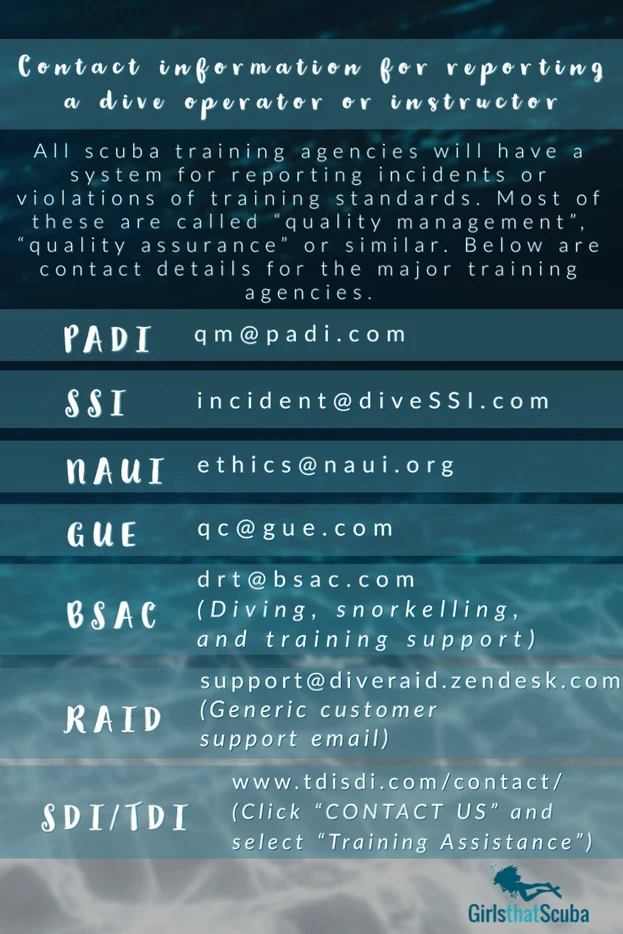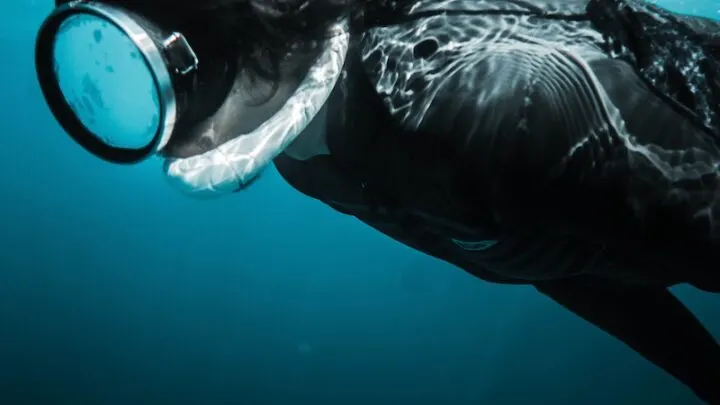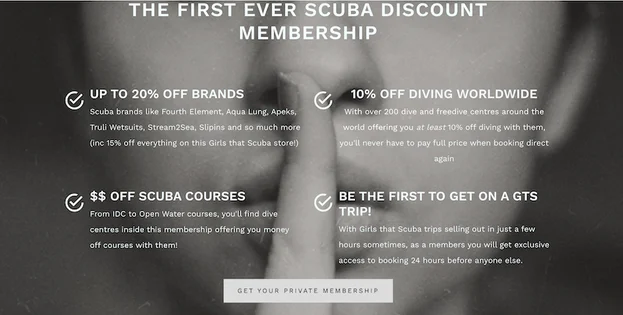Whilst most dives expose us to amazing corners of our underwater world, not every experience with a scuba diving operator is a great one. These negative experiences can be as harmless as bad customer service, or as serious as a training violation or even sexual harassment.
Whilst it’s not the easiest topic to discuss, we’re not afraid of dealing with challenging issues, and we think it’s important that every diver is empowered with the knowledge of how to deal with these situations. Read on for some advice on how to deal with a bad experience in the scuba industry.
Scuba diving customer service complaints
The simplest of all negative experiences you could have with a diving company would be poor customer service, and we would suggest dealing with that similarly to how you would deal with any other negative customer service experience. Here’s a few different approaches you may want to consider.
Have an open conversation
Dive shop managers are only human, so it’s always worth taking the time to discuss your issues with them in person. Having a face to face conversation allows you to speak openly about your experiences whilst they’re fresh in your mind, and also gives them the opportunity to put things right.
Quite often customer service problems can simply come from misunderstandings, so talking them through is a great way to clear things up and try and end things amicably for everyone involved.
Use the power of the internet
Sometimes, even when we talk things through we still don’t get the outcome we hope for and a dive shop still leaves us with a negative impression. If you’ve tried this first approach and you’re still unhappy with your experience, consider heading to online resources and sharing your story there. This could be on sites such as TripAdvisor, Yelp, or Facebook.
You can also report experiences to Undercurrent. This impartial online publication shares reports of dive businesses around the world, in an effort to keep the dive industry safe. Whilst the homepage suggests you have to be a member to submit an experience, for any serious dive incidents you can contact Undercurrent via email.
However, try to be as level-headed and factual as possible in recounting your experience. It’s easy for emotions to become heightened and for this to cloud your judgement in recalling a situation, but a balanced and factual account of your experience will read as more authentic and therefore be more helpful to future potential customers.
Be careful about naming and shaming
This advice falls into a similar category to remaining level-headed when writing an online review. With our modern day use of social media, it’s become common practice to shout about a negative experience much louder than praising a positive one.
Whilst we’d definitely encourage you to post your negative reviews in the appropriate places, be careful of trawling social media groups in order to bad-mouth a dive operator. Posting a balanced, factual review and then sharing it across your own platforms and to dive friends is a more organic, word-of-mouth approach which avoids the pitfalls of “cancel culture”.
Complaining about bad scuba instructors
Training issues are a whole different ball game, and these problems are potentially a lot more dangerous than a simple customer service complaint. Here’s our suggestions for how to deal with issues with your scuba diving instructor.
Have a conversation with your instructor
Just as negative customer service experiences can come from miscommunication, sometimes, negative experiences with a dive instructor can simply come from mismatched teaching and learning styles. As with any type of teaching, scuba instructors can become set in their ways and always teach things a certain way, but it’s perfectly normal for varied students to learn differently.
If you feel you can confidently sit and explain to your instructor why you’re struggling with their teaching, they may be able to adapt to better suit your learning style or point you in the direction of an instructor who is better suited to your needs.
Alternatively, if directly approaching the instructor is more challenging for you (we totally appreciate that this can be an intimidating situation!), consider speaking to the dive shop manager and seeing if they can resolve the issue on your behalf.
What to do if you feel unsafe with your scuba diving instructor
Sometimes issues with scuba instructors go beyond a simple mismatch of teaching styles. If you’ve found yourself in a situation where you feel unsafe at the hands of your instructor, this needs to be reported to both the dive centre and the training agency.
We would encourage you to report it to the manager of the dive operation first and foremost, as they may be unaware of the instructor’s unsafe behaviour. On the other hand, if you’re newer to diving they may be able to give you some clarity on why the instructor behaved in a way that you saw as unsafe – read on to the next section to learn more about how to tell when your safety is in question.
If you still feel that you were put in an unsafe situation (which is a very valid experience to have), then you should approach the training agency and report the instructor in question. Every training agency has some kind of quality management process to ensure their courses are being carried out correctly and safely, and this information should be easy to find on their website.
We also have a guide below detailing contact information for major dive training agencies. Be sure to report the name of the dive school, the instructor, and try and also use the instructor’s number (this should be signed in your log book if you have one). Just like reviewing customer service issues you should try to be as clear and factual in your reporting as possible, without letting your emotions overtake the account of the unsafe situation you were in.
Dive logs, photographs from the day, contact information of other guests on the boat, and recollections of conversations can all be useful in painting a thorough picture of what happened. It can be helpful to write down your account of your experience and then take some time away from it before reviewing it when you’re ready to submit the report.
How can I tell if my instructor is putting me in danger?
This is where it gets a little more challenging. When we’re brand new to diving, all of the new experiences can be slightly overwhelming for our brains to handle, and stressful situations can lead to “perceptual narrowing”. This means your mind becomes focused on one thing and struggles to see the bigger picture.
There can be circumstances where an instructor behaves in your best interest, such as pulling you down to stop your ascent if you begin to ascend rapidly, but in the moment this can feel like an unsafe situation to a new diver. This is why it’s important to discuss the situation with your dive operator first, but a great instructor should give you a solid debrief on why they reacted the way they did.
However, there are a few clear red flags for when a dive instructor is putting you in danger. This could include being taken into overhead environments (such as caves or inside wrecks), being taken beyond the maximum allowable depth for the level of your training (your first dives should be no deeper than 12m depending on the training agency), your instructor being too far away from you in a low visibility environment, your instructor leaving you unsupervised whilst they deal with another student, or having you perform skills in hazardous conditions such as a strong current. These are all examples of violations of training standards, and should be reported to the training agencies accordingly.
You should also report your instructor if you believe they’re leaving out skills and not teaching your course thoroughly enough, as this also violates training standards. You should be provided with training materials which outline all of the skills you’ll be learning, and if you believe skills are being omitted you should feel comfortable asking your instructor about this.
Sometimes, it can simply be a case of you forgetting you’d completed the skill (there’s a lot to learn), so again, always have the conversation with your instructor first. If it’s more comfortable for you, consider approaching it by asking “Can we please repeat the skill where we did XYZ?”. A reasonable instructor should be more than happy to let you repeat skills for your own confidence.
If you’re ever unsure, you should be able to check that your instructor is currently certified to teach by asking for their instructor number, full name, and contacting the training agency. For PADI, this can be done instantly via their Pro Chek tool. Many training agencies also publish lists of expelled instructors – PADI’s list can be found here, and you can click here for SSI’s list.
We’ve created a graphic below detailing the appropriate contact information for reporting an instructor or dive shop, and have tried to be as thorough as possible with including the most widely used certification agencies. If there’s an agency or contact that you feel we’ve missed, please let us know.
Please note that DAN (Diver’s Alert Network) is not a certification or training agency, and therefore isn’t an appropriate organisation to reach out to in these instances – unless you’re seeking dive medical guidance as a result of your negative experience. Save this image for future reference, or share with a diver who you think may benefit from it.

How to deal with serious situations – Physical or sexual harassment
Sadly there will always be people who abuse their positions, and we’d be naive to believe these serious situations didn’t happen within the scuba industry. The unique and delicate power balance between a scuba instructor and student can and most definitely has been abused. At the height of the #metoo movement, women from our GTS community came forward to share their experiences of sexual harassment in scuba diving.
Three years on, these situations still happen and a recent post in our Girls that Scuba Facebook group had hundreds of comments from women sharing even more stories and messages of solidarity that they, too, had been abused at the hands of an instructor or someone within the dive industry.
These situations are much more difficult and nuanced than straightforward service complaints, so whilst we recognise that dealing with them will look entirely different depending on where in the world you are, here are some tips which you may find helpful.
Report to local authorities
When scuba complaints go beyond training or service and into the territory of abuse, they may become criminal issues and should be handled accordingly. If you feel safe to do so, you should report the dive professional in question to the local authorities and allow them to conduct the relevant investigations. This should be alongside reporting it to the dive operator/dive shop manager, and of course reporting to the training agency. Once again, you should always protect your own mental wellbeing and ensure you feel safe and comfortable sharing your story to whoever you’re talking to.
Get legal support
This is a point which will vary hugely depending on your location, but if you’re in a place where it’s appropriate to do so, consider seeking out legal support.
Seek out safe places of support
In situations where you’ve felt abused or exploited it’s extremely important that you find help and support to look after your mental health. This may be in the form of formal therapy, or simply talking through your experiences with supportive friends and family. Our Girls that Scuba Facebook group is always a safe space to share your experiences, and there are over 50,000 women to listen and empathise with you. If sharing with such a large group is uncomfortable for you, our Girls that Scuba Admin team are also available to listen to your story and help in any way they can.
We would love your help in improving this list – have you ever had a bad experience with a dive school or dive operator? How did you choose to deal with it? If you feel comfortable doing so, share your story in the comments or reach out to us on our social channels.


